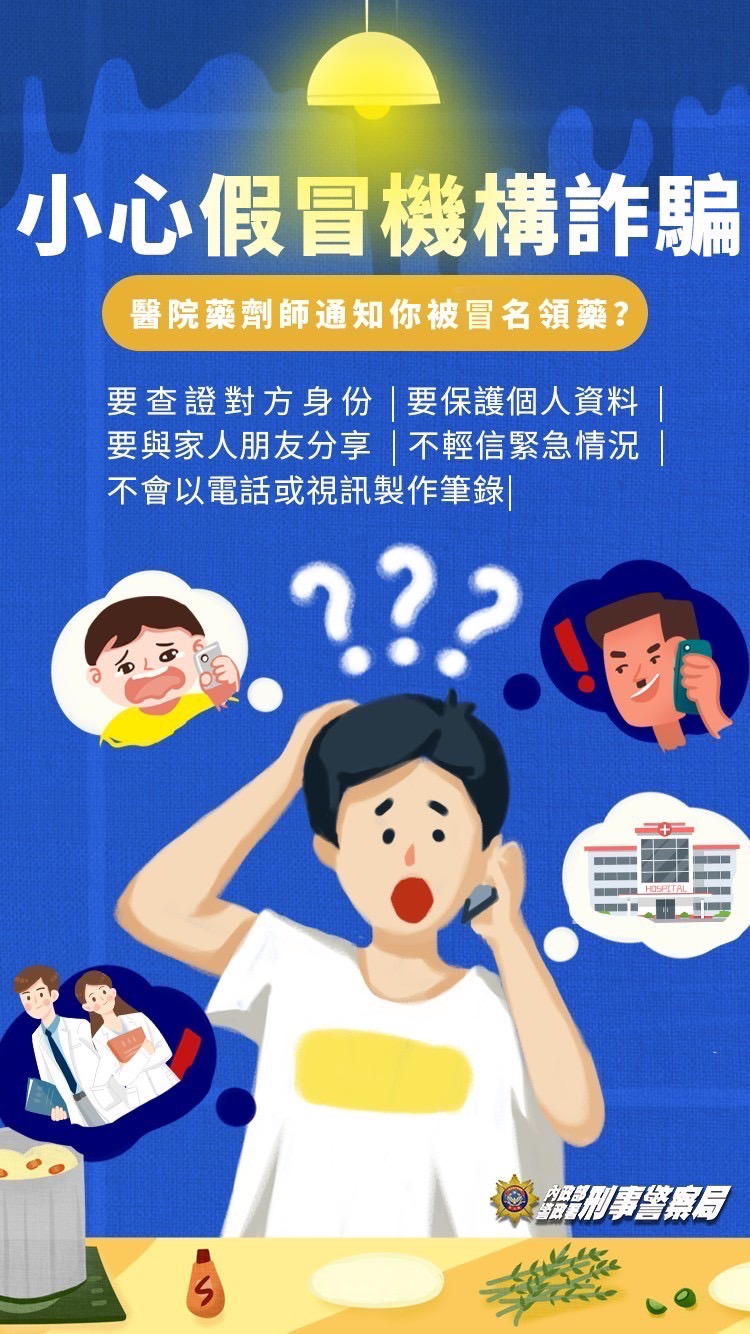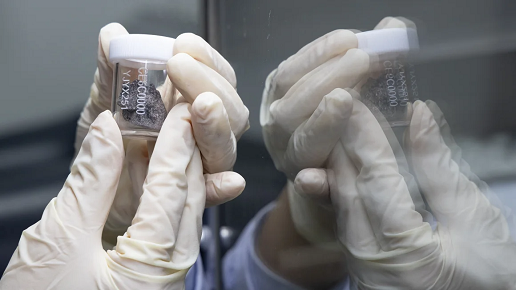Recently, the police have received multiple fraud cases involving scam groups impersonating pharmacists from Hualien Tzu Chi Hospital and collaborating with fake police officers to target the elderly. A 64-year-old man in Taipei surnamed Hsu, received a call in July from someone claiming to be a pharmacist from Hualien Tzu Chi Hospital, who falsely stated that Hsu's health insurance card had been used to obtain medication illegally. The call was then transferred to a "police officer" who claimed that Hsu’s personal information had been leaked and could be used for money laundering. The "police officer" instructed Hsu to mail his ATM card and provide the PIN for examination by the Financial Supervisory Commission. Believing the scam, Hsu sent his card as instructed and subsequently lost over NT$200,000 when his account was drained. Hsu only realized he had been scammed when the "police officer" called again, urging him to keep the case confidential.
The Criminal Investigation Bureau noted that scam groups are targeting the elderly by impersonating public officials to gain trust. The police emphasized the "3 Dos and 2 Don'ts" principle for public awareness:
- 1.Do verify identities: If contacted by someone claiming to be from a medical institution or police, hang up and call the official number to verify. Do not call back the number provided by the caller.
- 2.Do protect personal information: Do not provide personal details such as ATM cards, bank passbooks, online banking passwords, or ID cards based on phone instructions.
- 3.Do share with family and friends: Discuss suspicious calls with family or friends to prevent falling victim.
- 4.Don't make records over the phone or video: Scammers often pretend to be police officers making records over the phone or video, showing police badges. Real police do not conduct such operations this way.
- 5.Don't believe in urgent situations: Scammers often create a sense of urgency to pressure victims into compliance. Be calm and assess whether the requests are reasonable.
The police urge anyone suspecting a scam to call the 165 Anti-Fraud Hotline or visit the nearest police station immediately. Avoid believing claims on the internet about recovering lost funds to prevent falling victim to secondary scams.







